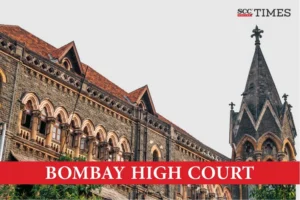Bombay High Court: The Division Bench of M.S. Sonak* and Jitendra Jain, JJ., heard a writ petition filed by Vishwas Haridas Jadhavar (‘petitioner’) with a plea that he be appointed to the Civil Services based on his performance in the 2008 UPSC Civil Services examination. He suffered from obsessive-compulsive disorder (‘OCD’) which was not recognised as a disability for the purpose of reservation under the Persons with Disabilities (Equal Opportunities, Protection of Rights and Full Participation) Act, 1995 (‘1995 Act’) but was later given recognition under the Rights of Persons with Disabilities Act, 2016 (‘2016 Act’). The Court held that since the matter was already decided by Delhi High Court, this matter was barred by res judicata and reasoned that a change in the legislative framework under the 2016 Act would not revive any selection process which was already concluded.
Background:
The petitioner was a candidate in the 2008 examination and was afflicted by OCD which was considered a mental disability within the meaning assigned to this term under Section 2(s) of the 2016 Act but not under the then 1995 Act. He secured 1110 out of 2300 marks but could not get a position in the OBC category. He pleaded that the last candidate selected in the category reserved for persons with disabilities had secured only 991 marks out of 2300 and contended that even though he suffered from mental illness, he could not apply to the posts reserved for persons with disabilities in that selection process. Therefore, the petitioner asked to be considered against the posts reserved for the OBC category.
He further stated that the 1995 Act provided reservations for persons with disabilities only for 3 per cent of the posts and that too for people suffering from (i) Blindness or low vision; (ii) hearing impairment; (iii) Locomotor Disability or Cerebral Palsy. No posts were identified for those suffering from any mental illnesses. He filed a writ petition in the Delhi High Court wherein he contended that the exclusion of those suffering from mental illness rendered Section 33 of the 1995 Act arbitrary and unconstitutional due to vice of under inclusiveness, but it was dismissed by the said Court. He then instituted a letter patent appeal which again failed but the Court observed that though it found the petitioner’s grievances, to an extent, to be justified, the remedy lied in amending the law. He also instituted a review petition which was dismissed by an order dated 10-3-2017 and thereafter, he did not carry the matter any further before the Supreme Court.
But while his review petition was pending in the Supreme Court, the 2016 Act was passed wherein Section 34(1)(d) clearly referred to persons suffering from autism, intellectual disability, specific learning disability and mental illness. The petitioner represented to the respondents that he should be appointed to the Civil Services based upon his performance in the 2006—2008 selection process and submitted that if the posts were to be identified for persons with mental illness in the 2006-2008 selection process, then, he would certainly have been selected to the Civil Services urging that his non-selection was therefore arbitrary. He sought his appointment to the post and all consequential benefits (monetary and promotion).
The respondent submitted the contention that this petition was barred by delay and laches and that the grievances stood concluded after the Delhi High Court dismissed his writ petition and letter patent appeal and so, the present petition which sought to raise issues concerning the selection process of 2006-2008, was barred.
Analysis:
The Court observed that insofar as the selection process of 2006-2008 was concerned, all issues and grievances were addressed by the Delhi High Court and so the petitioner could obtain no relief in that regard because the principle of res judicata or constructive res judicata would apply to such a situation. Even if the Court w to consider the case on merits, no case would be made out to grant the relief as the Delhi High Court found no legal infirmity in the selection process. Though the position underwent legislative change after the 2016 Act came into force, it did not revive the earlier selection processes which was judicially examined and found to be legal and proper. Therefore, due to the change in legal position brought about by the 2016 Act, there would be no scope to interfere with the concluded selection process of 2006-2008 as that would mean providing it a retrospective operation.
The Court opined that if the reliefs claimed by the petitioner were granted, it would lead to administrative chaos because firstly, no posts were advertised for persons with mental illness; secondly, if he would be appointed it would give rise to several complications regarding seniority, induction etc., and thirdly, once it was established that there was nothing wrong with the 2006-2008 selection process, the grant of such relief was also not warranted due to subsequent legislative changes.
After all these considerations, the Court found itself unable to grant the reliefs sought by the petitioner and disposed of the petition without cost.
[Vishwas Haridas Jadhavar v. Union of India, 2025 SCC OnLine Bom 2369, decided on 16-6-2025]
*Judgment authored by: Justice M.S. Sonak
Advocates who appeared in this case:
For the Petitioner: Sanjeev Kadam, Senior Advocate with Prashant Raul with Varsha; Thorat with Suraj Mhadgut with Harsh Khot, i/b Veera Shinde
For the Respondents: Anamika Malhotra with Mainak Adhikary, for Respondents 1 and 2.

